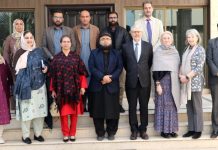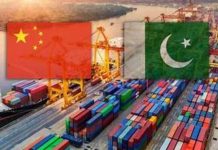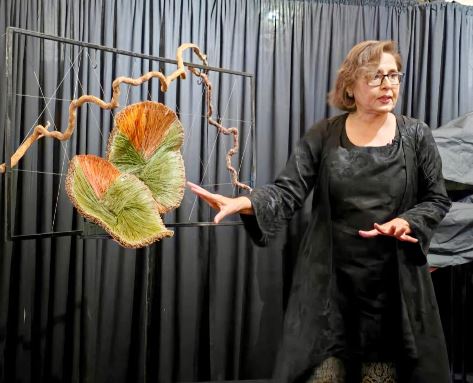Fifty years ago, the UN General Assembly created the United Nations Industrial Development Organization (UNIDO). The Organization quickly grew to its current size of 170 members. As we look back on our 50 years, there is no doubt that UNIDO is still as relevant as it was when it was created.
In the early 70s, when Pakistan’s leather industry was in its infancy, UNIDO started to play a catalytic role in building capacity to create the conditions for the rational progression of that sector. Since then, UNIDO has been diversifying and significantly increasing its activities into multiple areas in various productive sectors. As a result, we can say that UNIDO in Pakistan has been actively working to improve the country’s industrial development, trade capacity, access to renewable energy and environmental protection.
While it is beyond UNIDO’s mandate to address all economic and social challenges faced by a country like Pakistan, the impact of UNIDO’s interventions are already showing multiple effects, which will be instrumental in boosting job opportunities, reducing poverty and enhancing the country’s overall economic growth.
The salient achievements in the past can be seen in various sectors. It is particularly worth mentioning UNIDO’s efforts in building Pakistan’s trade capacity and how that enabled many sectors to meet global market requirements. This was a multidimensional and intensive task. , For example, UNIDO helped with the establishment of a comprehensive food safety system, starting with the passage of Pakistan Food Safety Bill developed by UNIDO over more than three years in cooperation with more than eight ministries. In the process, UNIDO helped 40 laboratories get accreditation and more than 120 food inspectors and master trainers gain internationally recognized qualifications.
Setting up the first laboratory of its kind in the region for dioxin-testing is yet another good example, and facilitating the resumption of fish exports to the EU market, after a seven-year ban is another. Thanks to UNIDO the mango farmers of Multan have now received sufficient training so that they can export their products directly to high-end markets, such as Walmart in the United Kingdom. Similarly, the certification of CE Marking was a gateway for accessing the
EU market for various industrial products like surgical instruments, electric fans and cutlery, which will go a long way in boosting exports by capturing a niche in the global market.
In a country like Pakistan, where there is a dearth of encouragement of innovation at the state level, UNIDO has been a flag-bearer supporting youth who have innovative ideas, especially in clean technology, and enabling them to access and compete at global arenas like Silicon Valley, USA.
Back in the 1980s, UNIDO started addressing the prevailing environmental issues in Pakistan by establishing the first combined effluent treatment plant at Kasur, a city in Punjab. The plant helped minimize the pollution generated by tanneries which were dumping production waste in adjoining water bodies.
Some personal success stories can also be highlighted. Asra, a young lady from Lahore was very shocked to hear her name announced by the jurist at the National Cleantech Award Ceremony, which was held in Pakistan last year. Asra was the only woman among the five winners who were selected from more than 450 contestants. Her idea was to create a hybrid technology to power bicycles by using the energy generated and stored while pedalling. The idea was further polished and developed with help from UNIDO’s Cleantech Project.
Similarly, Faisal, a young engineer, won the runner-up in the competition of the 2015 Cleantech Global Prize held in Silicon Valley. His novel idea was for a gasifier that runs on agricultural wastes and is mounted on the tractor that it drives.
These are but a few of UNIDO’s groomed innovations which were built up to international standards. These endeavours have recently been acknowledged at the government level, a move that could pave the way for thousands of other innovations to grow into viable and successful businesses. Last but not least, UNIDO has given a lot of emphasis to gender mainstreaming. One example is the story of Fakhra, a women hailing from Rawalpindi, who saw her family left helpless when her husband got acutely sick and lost his source of livelihood. She undertook a training in fashion design under a UNIDO project entitled, “Women’s Entrepreneurship Development”. She subsequently has become a successful businesswoman, running an enterprise which hires more than 10 women. The gist is that UNIDO’s portfolio is diverse and dynamic in multiple areas. These achievements also depict clearly the inclusive and sustainable industrial development spirit and are very much in line with the Government’s so-called “Vision-2025” for Pakistan.
The guiding principle for UNIDO’s concrete role in the future lies in promoting Sustainable Development Goal (SDG) 9 (industry, innovation and infrastructure) and contributing to other
SDGs.
Following the development path that Pakistan has embarked upon, UNIDO will continue to advance and diversify its focus in targeted areas without losing sight of the need to strengthen small and medium-sized enterprises, create jobs and combat poverty.
The writer of this article is Director General United Nations Industrial Development Organization











